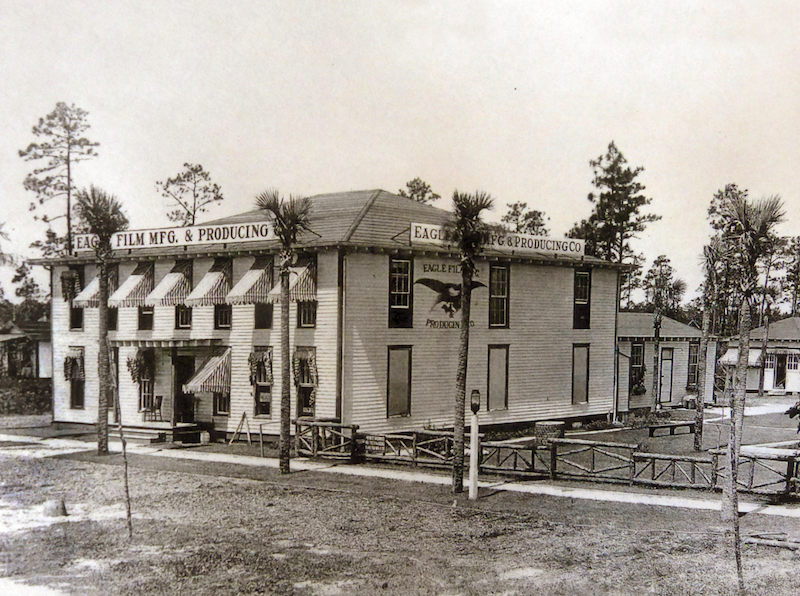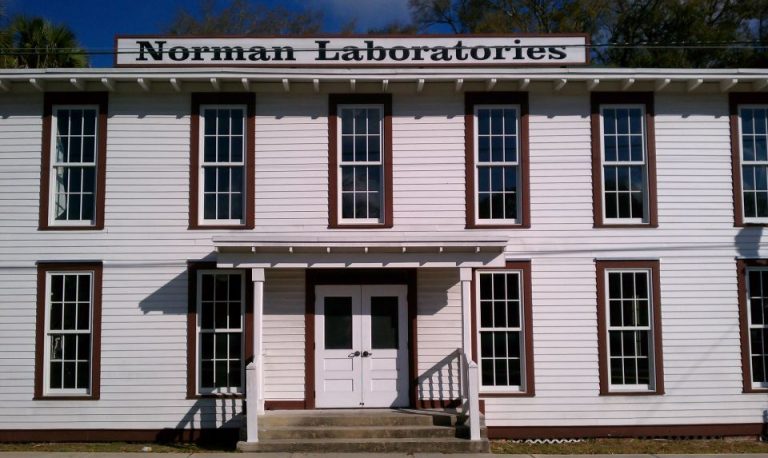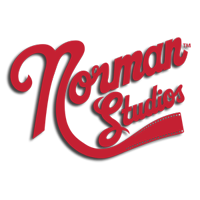
Jacksonville’s Norman Studios is among 10 sites announced today as new national historic landmarks by U.S. Secretary of the Interior Sally Jewell and National Park Service Director Jonathan B. Jarvis.
“These 10 new national historic landmarks reveal important pieces of our nation’s diverse heritage through art, architecture and stories of community and identity,” said Secretary Jewell. “Today’s designation ensures future generations can trace, understand and learn from these properties, which join more than 2,500 other landmarks nationwide.”
Now known as Norman Film Manufacturing Company, the five-building complex was built in 1916 and first housed the Eagle Film Company from Chicago. The site is one of just two National Historic Landmarks in Jacksonville. The shipwreck site of the Maple Leaf, a Civil War vessel, still resting at the bottom of the St. Johns River off Mandarin was designated a National Historic Landmark in 1994.
During the early era of film production, Jacksonville was known as the “Winter Film Capital”, hosting upward of 30 motion picture studios. New York-based Kalem Company was the first to establish a wintertime production center in Jacksonville in 1906 on the grounds of the Roseland Hotel. On-site facilities and a mild climate allowed year-round production of films for top companies including the Lubin Manufacturing Company, which produced the first films starring Oliver Hardy in the River City. The film companies lost favor with a newly elected mayor which led to their exodus by 1919.
Filmmaker Richard E. Norman purchased Eagle Film City in 1920, making it both his family’s home and the headquarters for his filmproduction and distribution company. Norman Studios Silent Film Company produced “race films,” moving pictures made for African American audiences and featuring black actors playing positive, nonstereotypical roles. Race film actors played heroes, military and business leaders, and agents of action and change – a stark contrast to the negative portrayals routinely depicted in mainstream films of the day.
Today, the Norman property is split, with the City of Jacksonville owning the portion holding the main production building, a generator shed, wardrobe cottage and prop storage garage; and Circle of Faith Ministries owning the portion holding the set and stage building. Norman Studios Silent Film Museum, Inc., a nonprofit organization, manages the City-owned portion of the property and recently launched a major fundraising campaign to purchase the outstanding portion. Reunifying the full campus under singular management will allow the organization to further preserve the site, develop film and history related exhibits and programs; and ultimately reach its goal of transforming Jacksonville’s sole remaining silent film studio into a world-class tourism, film education and research center.
Find out more at normanstudios.org, or contact Rita Reagan or Devan Stuart Lesley to arrange interviews or tours of the Norman property.



Hi!
I’m an archival researcher for documentary film and I’m trying to track down the rights to these images of Norman Studios and hopefully hi res copies! Would you be able point me in the right direction?
Thank you!
Aiko
Congratulations!